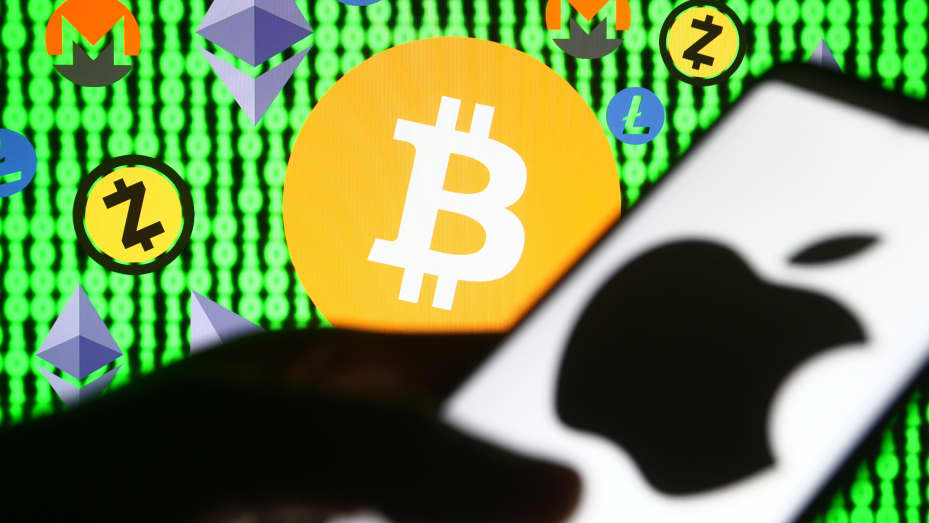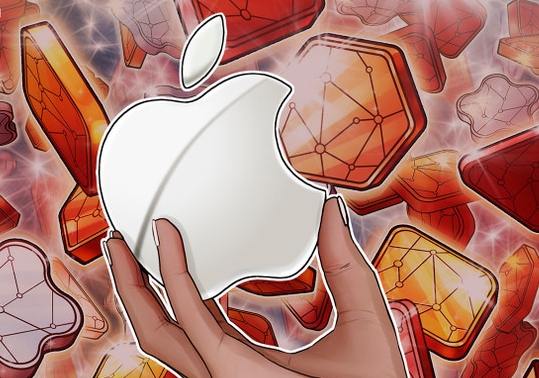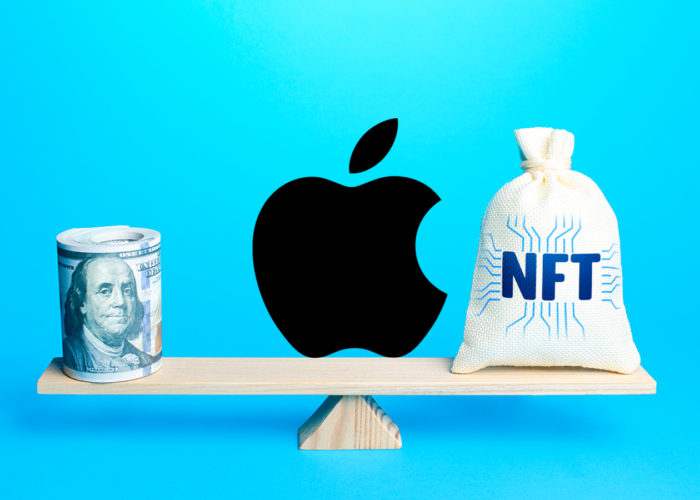Apple, the notorious tech company that rules the world, has welcomed the idea of NFTs in the app store. However, NFTs are only welcomed under certain conditions. With an update to its app store review guidelines, the tech giant has acknowledged the use of NFTs and how they will act in the Apple space. So, let’s find out more about this potentially groundbreaking announcement.

Apple’s Approach to Web3
Typically, Apple has not welcomed the idea of cryptocurrency and NFTs. NFTs are everywhere nowadays and are in regulators’ and lawmakers’ crosshairs. However, Apple has affected NFTs and startup crypto companies just as much as those who do not engage in the metaverse.
Generally, Apple is not supportive of Web3, NFTs, and cryptocurrency. With Apple products being so incredibly popular and familiar to us, it’s odd to see how they cannot engage in the metaverse at all. With the invention of cryptocurrencies, tokens, and NFTs, Apple could hold onto this idea, especially regarding revenue and growth. Some NFTs are worth hundreds of thousands of dollars and are extremely valuable. As we see more use for cryptocurrency in the real world, Apple allowing the use of Web3 and its technology could truly utilize the potential of the metaverse.
Previously, a lot of crypto wallet apps were made unavailable on the Apple app store. If users owned an NFT or cryptocurrency and an Apple product, it was difficult to access their fortunes. For example, looking at Epic Games and Apple’s court case involved Apple attempting to maintain a 30% fee from users who buy gems and tokens in games. This was done in order to fight for a similar fee from users who are buying NFTs or tokens through apps on its platform.

Apple Consider NFTs in App Store Under Certain Conditions
Apple has changed its tune with a new update to the app store review guidelines. Making various changes to the ways users can access and use NFTs in its ecosystem could change things for NFTs and Web3. So, in the shortest terms, NFTs are allowed to exist within apps on the App Store, but they cannot unlock additional features or content.
License Keys
License Keys are ways to make sure that only the designated users can install or use a particular piece of software. When making a statement about using NFTs, Apple stated that apps might not use their own mechanism to unlock content or functionality. This includes using license keys, augmented reality makers, cryptocurrencies, QR codes, and different types of cryptocurrency wallets.
As Jason Baptise, CEO of YDY commented, ‘a big positive is Apple saying yes, you can sell NFTs’. However, Baptiste stated that the bad news is that they’re applying legacy thinking to new technology. Baptiste is correct in this approach. In order for Apple to benefit and live harmoniously with the existence of NFTs and cryptocurrencies, they need to put down their self-appointed view, and get with the times, essentially.
Apple could well and truly benefit from allowing and encouraging users to use blockchain-enabled ecosystems. However, the only way in which this could work is if Apple worked with crypto developers to shape the app store policies rather than against developers. Generally, the idea of crypto has baffled traditional technology companies, with a completely different and unique ecosystem that threatens the traditional way of technology. Apple is the world’s most valuable company in the world, with a $1.2 trillion market cap. So, it could hugely benefit both parties to encourage the use of cryptocurrencies and NFTs.

Guidelines
Apple are strict regarding the App Store, taking a 30% cut of every single in-app purchase. This is a huge percentage when you think about the number of apps and value on the app store alone. With Apple’s new guidelines, they are clearly stating NFT activity falls within the purview of the 30% fee. This prevents any users from deploying tokens to prevent charges being made to Apple.
Ownership
As we all know, the concept of NFTs and cryptocurrency revolves around the blockchain and the smart contracts within it. Smart contracts and the blockchain enable your information to consistently remain anonymous, secure, and truly your own. Tim Sweeny, one of the pioneers of modern gaming commented on the new App Store policy.
To cryptocurrency enthusiasts, this means Apple is now adding a 30% tax on your so-called “true ownership” of digital goods.
To crytocurrency detractors, this shows Apple’s motivations are only money. For digital items, they support NFTs they tax, and ban NFTs they don’t tax. https://t.co/RWZC1rSUwh
— Tim Sweeney (@TimSweeneyEpic) October 24, 2022
In a series of tweets, Sweeny aired his complaints about the new decision. Ownership is super important to cryptocurrency enthusiasts. Apple adding this 30% tax on your supposed true owned digital goods is a complete farce. Apple’s motivations are clearly centered around making money, supporting the NFTs that they can tax, and banning the NFTs they don’t tax.
These new Apple guidelines are not the most promising for the crypto industry. For Apple to progress into Web3, it will have to accept the meaning of NFTs and cryptocurrencies.












No Comment! Be the first one.